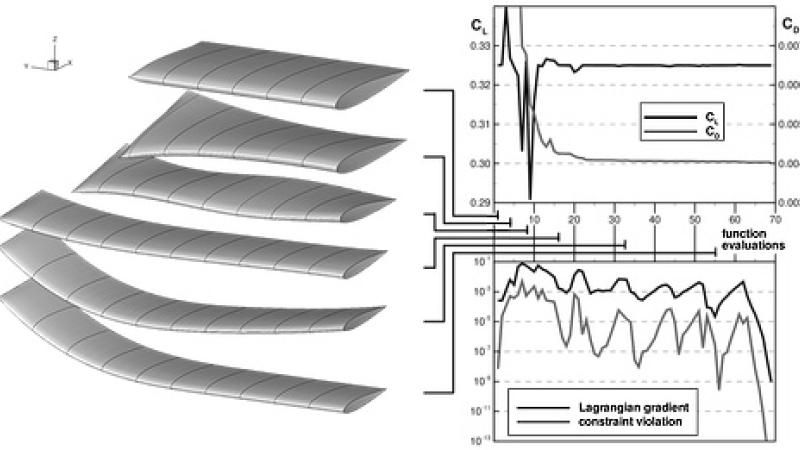Will develop simulation-enhanced virtual design environments for fluid systems
February 12, 2016

Jason Hicken, assistant professor of mechanical, aerospace, and nuclear engineering at Rensselaer Polytechnic Institute (RPI), has been awarded a prestigious Faculty Early Career Development Award (CAREER) from the National Science Foundation (NSF) Division of Civil, Mechanical, and Manufacturing Innovation.
Hicken is an expert in simulation-based design optimization, a field at the intersection of computing and optimization with broad applications to design of mechanical and aerospace systems. He will use the five-year, $500,000 CAREER Award to develop virtual design environments for fluid systems using computer simulations and optimization.
“We congratulate Dr. Hicken on winning the CAREER Award,” said Shekhar Garde, dean of the School of Engineering. “He is bringing together expertise in mathematics, computing, and algorithms to change the way we think about cutting-edge engineering design. He is also advancing pedagogical innovations by designing virtual-reality environments for aerospace engineering education. We are proud of his accomplishments.”
Fluid systems, such as aircraft, biomedical pumps, or turbines, play a vital role in many sectors of the economy, according to Hicken. Yet they are often difficult and costly to design, presenting a barrier to product development. The complicated nature of fluid flows also poses a barrier to understanding fundamental concepts by students.
“To overcome these barriers,” says Hicken, “we envision an immersive, virtual-reality design environment in which engineers can interact with aircraft or heart pumps in the same way artists interact with clay.”
A key element of this vision is the ability to provide engineers with instantaneous performance predictions as they shape their virtual designs. Hicken and his group will help build the knowledge necessary for real-time prediction of complex fluid flows to enable the next generation of tools for immersive computer-aided design and engineering education.
Hicken received his bachelor’s in applied mathematics from the University of Waterloo, his master’s in mechanical engineering from Dalhousie University, and his doctorate in aerospace engineering from the University of Toronto Institute for Aerospace Studies. Before joining Rensselaer in 2012, he was a Natural Sciences and Engineering Research Council of Canada postdoctoral fellow at Stanford University.
Hicken is the 2014 recipient of the inaugural Howard Rosenbrock Prize for the best paper published in the Journal of Optimization and Engineering. In 2015 he received a Young Investigator award from the Air Force Office of Scientific Research.
Hicken’s work is an example of how Rensselaer embodies The New Polytechnic, a new paradigm for teaching, learning, and research. Rensselaer leads by using advanced technologies to unite a multiplicity of disciplines and perspectives, in order to take on large, multifaceted challenges to become transformative in three fundamental ways: in the global impact of our research, in our innovative pedagogy, and in the lives of our students.